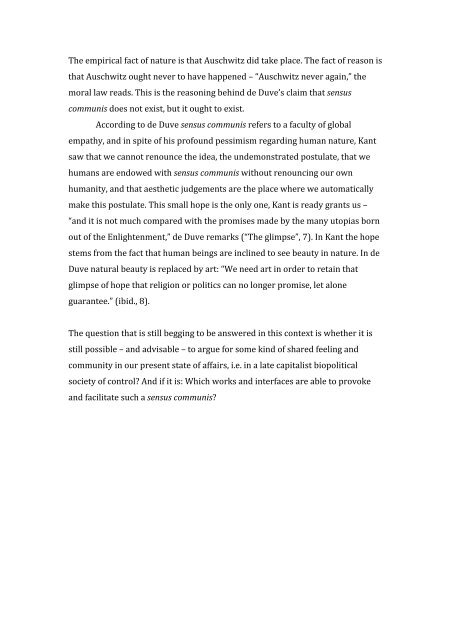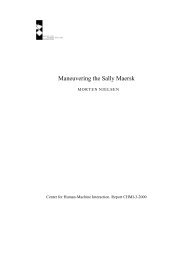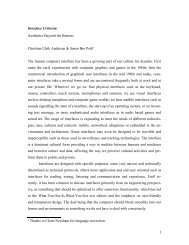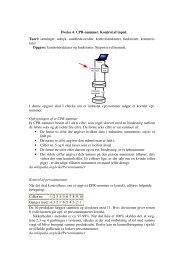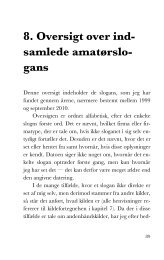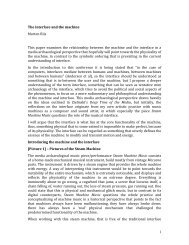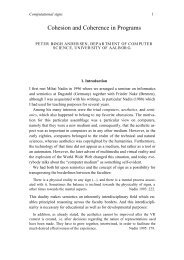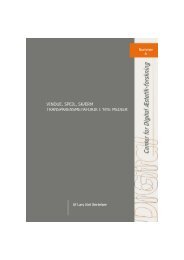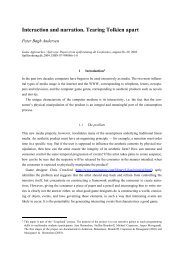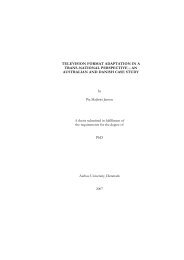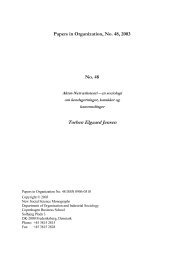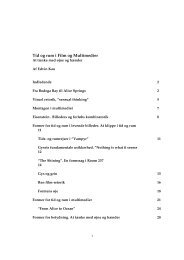SENSUS COMMUNIS AND THE PUBLIC Jacob Lund Drawing upon ...
SENSUS COMMUNIS AND THE PUBLIC Jacob Lund Drawing upon ...
SENSUS COMMUNIS AND THE PUBLIC Jacob Lund Drawing upon ...
Create successful ePaper yourself
Turn your PDF publications into a flip-book with our unique Google optimized e-Paper software.
The empirical fact of nature is that Auschwitz did take place. The fact of reason is <br />
that Auschwitz ought never to have happened – “Auschwitz never again,” the <br />
moral law reads. This is the reasoning behind de Duve’s claim that sensus <br />
communis does not exist, but it ought to exist. <br />
According to de Duve sensus communis refers to a faculty of global <br />
empathy, and in spite of his profound pessimism regarding human nature, Kant <br />
saw that we cannot renounce the idea, the undemonstrated postulate, that we <br />
humans are endowed with sensus communis without renouncing our own <br />
humanity, and that aesthetic judgements are the place where we automatically <br />
make this postulate. This small hope is the only one, Kant is ready grants us – <br />
“and it is not much compared with the promises made by the many utopias born <br />
out of the Enlightenment,” de Duve remarks (“The glimpse”, 7). In Kant the hope <br />
stems from the fact that human beings are inclined to see beauty in nature. In de <br />
Duve natural beauty is replaced by art: “We need art in order to retain that <br />
glimpse of hope that religion or politics can no longer promise, let alone <br />
guarantee.” (ibid., 8). <br />
The question that is still begging to be answered in this context is whether it is <br />
still possible – and advisable – to argue for some kind of shared feeling and <br />
community in our present state of affairs, i.e. in a late capitalist biopolitical <br />
society of control? And if it is: Which works and interfaces are able to provoke <br />
and facilitate such a sensus communis?


